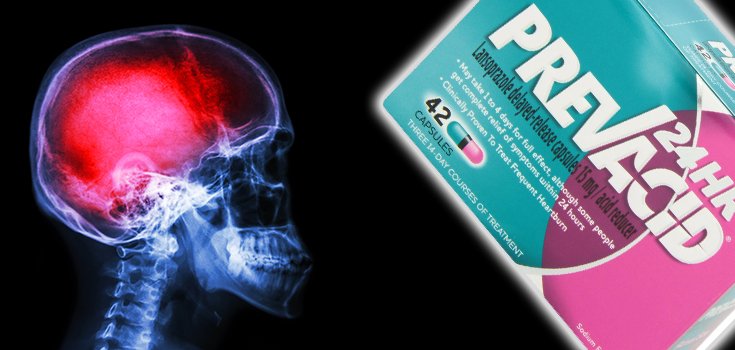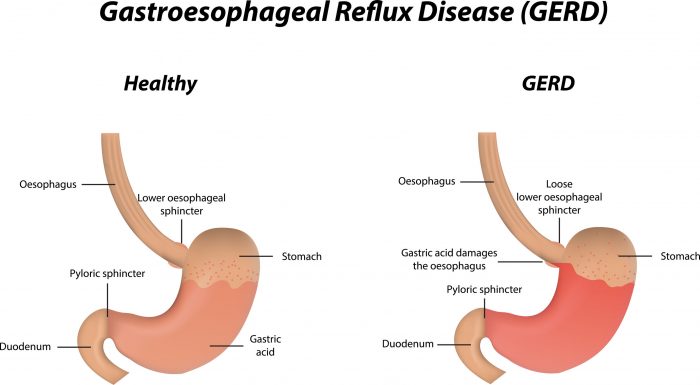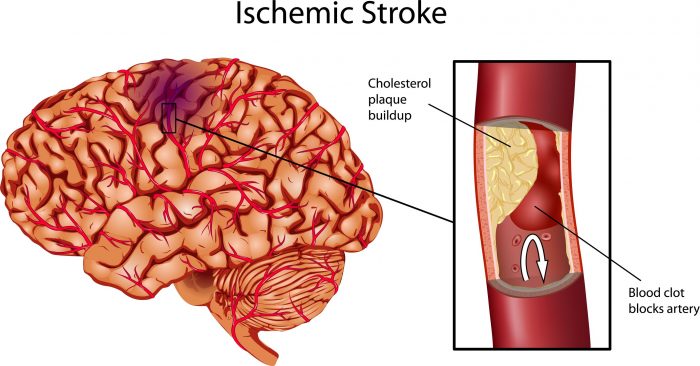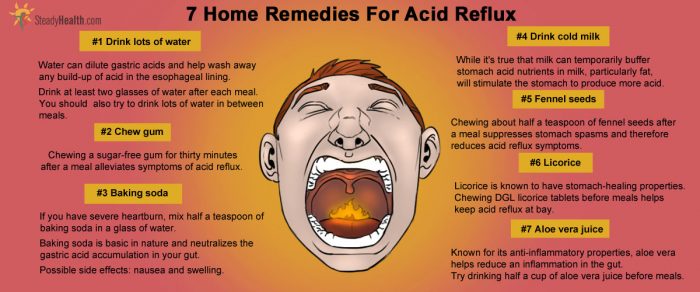Heartburn Drugs Linked to up to 94% Increased Risk of Ischemic Stroke

Ads for heartburn medication are everywhere, with media being littered with ads for “the big guns” like Prilosec, Nexium, Prevacid, and Protonix. They must be safe, right? Well, it’s still important to know the risks – as one study shows that people who take proton pump inhibitors (PPI’s) have a higher risk of stroke.
Lead study author Dr. Thomas Sehested says that, overall, taking PPI’s increase your stroke risk by 21%. [1]
What are PPI’s?
This popular class of drugs works by reducing the amount of acid produced in the stomach, which cuts the amount of stomach acid that backs up into the esophagus, producing that all-too-familiar burning sensation.
Everyone has heartburn from time to time, but a person who experiences heartburn twice a week may have a condition called gastroesophageal reflux disease, or GERD. Over time, if GERD is not treated, it can cause serious illness and injury to the esophagus, including ulcers, scarring, and even cancer.
These drugs are supposed to help with that.

Mapping the PPI-Stroke Link
In the study, Sehested and colleagues analyzed data from 244,679 adults from Denmark (average age 57) who underwent endoscopy to determine the cause of their stomach pain or indigestion.
During the average of 6 years of follow-up, 9,489 patients experienced a first-time ischemic stroke.
The researchers looked at the patients’ use of 1 of 4 PPI’s – omeprazole (Prilosec), pantoprazole (Protonix), lansoprazole (Prevacid), and esomeprazole (Nexium) – to see if use of the medications was associated with ischemic stroke risk, which occurs when a blood clot blocks the flow of blood to the brain.

Overall, the researchers found that individuals were at 21% greater risk of ischemic stroke when they were using PPI’s compared to when they were not using the drugs.
The team found that there was little or no greater risk of stroke with low doses of PPI’s. What’s more, another group of medications used to treat heartburn – called H2 blockers – were not linked to increased stroke risk.
People taking lansoprazole (Prevacid) had the greatest increased risk of ischemic stroke – 94%. Lansoprazole (Prevacid) fared the best, increasing the risk of ischemic stroke 30%. [2]
In previous studies, PPI use has been associated with heart disease, heart attacks, and dementia. [1]
Cause-and-Effect Not Proven
Because the study was observational, the researchers could not prove cause and effect between PPI use and increased stroke risk. However, the increased risk remained after the team accounted for possible confounding factors, including age, gender, high blood pressure, atrial fibrillation, and use of medications that have been linked to poorer cardiovascular health.
The scientists said that people should be cautious about taking PPI medications, which are now available over the counter.
Sehested said that doctors, too, should be cautious when deciding to prescribe PPI medications to patients, and for how long. He added:
“We know that from prior studies that a lot of individuals are using PPIs for a much longer time than indicated, which is especially true for elderly patients.”
Sehested said it’s not clear why PPI’s may be harmful to cardiovascular health. He did point out that the medications might reduce levels of biochemicals which are vital to the maintenance of blood vessels. A lack of these biochemicals in the body could cause hardening of the arteries. [2]
PPI’s have also been linked to increased risks of bone fractures and malabsorption, as well as Clostridum difficile (C. diff), a bacteria known to cause severe, sometimes fatal, diarrhea and inflammation of the colon.

If you’re a heartburn sufferer, there are natural ways to get rid of your pain. A 2007 study in Molecular Research and Food Nutrition, researchers found that ginger got rid of heartburn 8 times better than Prevacid. Other people have had success with drinking apple cider vinegar, or consuming a mixture of 1/4 teaspoon of baking soda dissolved in 4 ounces of water.
Sources:
[2] Chicago Tribune
